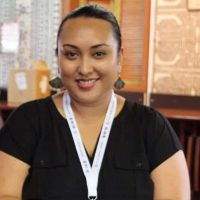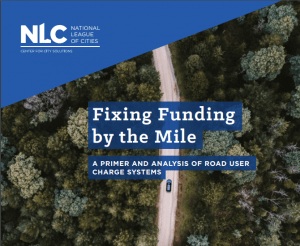
A young woman from American Samoa was part of a group of graduate students who conducted research on alternatives to funding road improvements other than gasoline excise taxes.
Their research has been published by the National League of Cities, the nation’s oldest and largest organization devoted to strengthening and promotion cities as centers of opportunity, leadership and governance.
The researcher and study author from American Samoa is Petti Matila, currently the HUD Community Planning Development Coordinator for ASG and assistant to the Director of Commerce. 
“Fixing Funding by the Mile: A Primer and Analysis of Road User Charge Systems” suggests that as costs for construction have risen and vehicles have become more fuel-efficient, the flat gas tax, which funds the Highway Trust Fund (HTF), has fallen short of meeting the nation’s repair and maintenance needs.
As cities and states deal with the immediate consequences of the HTF shortfall, they have ramped up efforts to explore other revenue sources and technologies to ensure the future of infrastructure funding.
Since 2007, various state governments have conducted pilot programs to assess the feasibility of wide-scale implementation of road user charge (RUC) programs.
A RUC system, also commonly referred to as a Vehicle Miles Traveled (VMT) tax or a Mileage Based User Fee (MBUF) system, would charge a driver for their use of a roadway. This system is often touted as a potential sustainable funding solution for America’s transportation infrastructure deficit and an answer to the inadequate HTF.
In their research the graduate students at the American University Department of Public Administration and Policy reviewed six road user charge pilot programs, each featuring unique implementation methods, with an analysis of the advantages and potential barriers to implementing a RUC program.
After a discussion of the pilot programs, they identify opportunities for cities and local governments to utilize the lessons learned in these pilot studies.
Matila did the research for her Master’s degree in public policy and analysis and received her graduate degree in 2017 from American University Research.
Her BA is in Political Science and Government from Arizona University.
She was part of the ASG delegation to the National Governors Association winter meeting in DC and was also chosen by the US State Department for 2019 Young Pacific Leaders Conference in Fiji.




